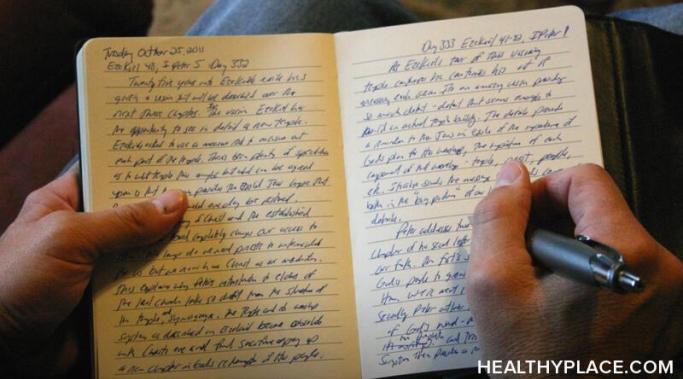When I'm anxious, one of the hardest things to do is to stop overthinking. After all, this seems to be what anxiety is about, beyond, of course, the physical symptoms. Anxiety causes you to worry about what you are experiencing stress about. Therefore, you end up overthinking about the situation and about various scenarios. It's hard to stop overthinking.
Cognitive Behavioral Tips
A key strategy that I have found helpful for my anxiety has been journaling. Whether I am in the middle of an unexpected stressful situation or have encountered something that has triggered my anxiety, journaling helps to reduce my anxiety symptoms.
If you want to prevent anxiety as we enter the new year, better self-care may be on your list of resolutions. But how quickly do we veer off course when we set lofty expectations for ourselves? I’d like to offer some tips to help you build a self-care practice to prevent anxiety without exacerbating it in the process.
I recently attended a rational emotive behavior therapy (REBT) training and I began thinking more about using it to reduce my own anxiety. Rational emotive behavior therapy, the first form of cognitive behavioral therapy (CBT), was developed by Albert Ellis in the 1950s. The REBT approach encourages us to dispute irrational thinking to develop healthy emotional self-regulation.
Limiting beliefs and thoughts are often at the root of social anxiety. If we trust these limiting beliefs, we give our thoughts undue power. Cognitive restructuring is one technique used in cognitive behavioral therapy (CBT) to treat social anxiety.
Evidence shows that using cognitive behavioral therapy (CBT) to treat anxiety works. Cognitive behavioral therapy focuses on replacing maladaptive thoughts and behaviors with positive, healthy ones. Patients are taught to recognize, question, and refute negative behaviors and thought patterns, and then to replace them with more adaptive versions. By learning to do this, we engage in new ways of thinking and acting. Using CBT to treat anxiety helps us more effectively manage our anxiety symptoms.
Fear denied, repressed, suppressed, or put out of mind is not fear extinguished.
Treating anxiety: 'as if'
I've been told that acting 'as if' I'm not nearly as anxious as I am is a helpful thing. It's also dangerous. As with almost any technique sometimes is fine but if you're anything like me and you'll do whatever you have to do to be able to put your anxiety aside and function, and if what you want is to go on with as much of life as you can, uninterrupted by fear, then it can become destabilizing.
On a scale of 1-10 how annoying is it when therapists ask questions which sound more like triage than psychotherapy?
One of my commenters took me to task for not talking much (or indeed at all) about the behavioral side of cognitive behavioral therapy (CBT) in a recent post. I shall now regale you with exciting tales of behavioral psychology in order to rectify the situation. Or not, since I expect your definition of exciting extends a touch beyond this topic.
My somewhat love-hate relationship with the B part of CBT aside, the real question is what works.
One of the things that drives me crazier than usual is this notion that anxiety is in overwhelming proportion amenable to rational thought on the part of the person suffering from the anxiety disorder. It's a persistent idea. It's also wrong.
Cognitive behavioral therapy: What they don't tell you, why you should find out
Feel free to question my emotional competence but I'm not insane. For that matter, most people with mental illness are not insane.
This may be obvious but for many it's not. Anyway, how many times have you thought, 'oh goodness, I must be really losing it this time' during the course of mental health difficulties?
It's a common concern that can dramatically increase the amount of anxiety a person experiences. It may also inhibit their ability to trust, and to ask for help.









